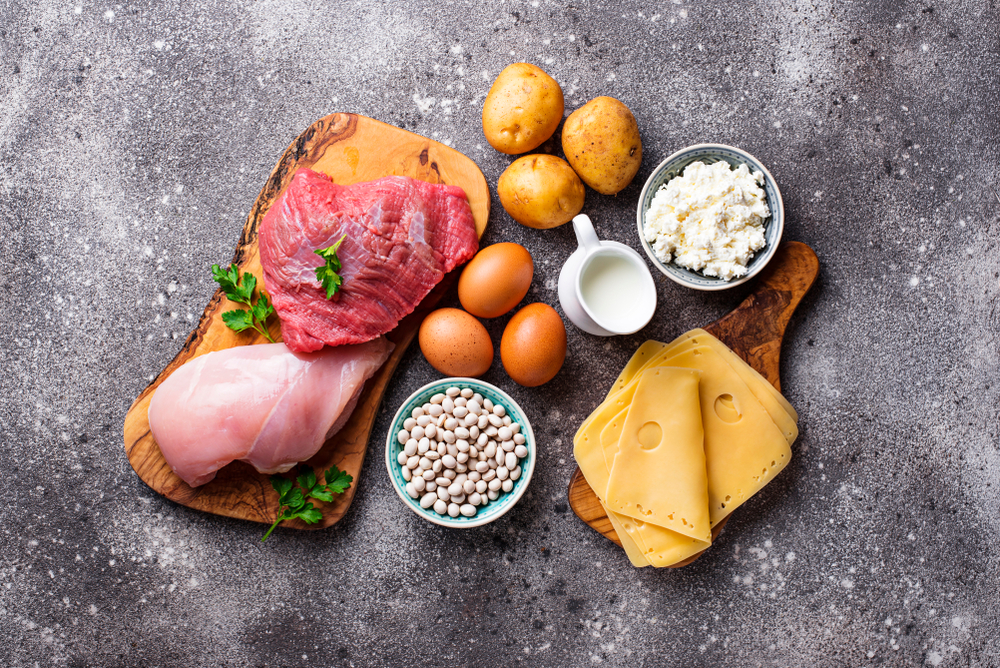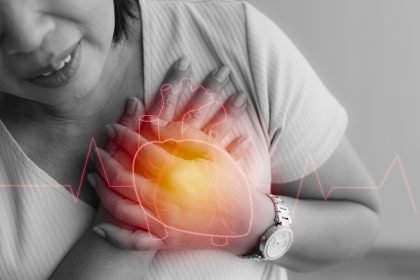The fitness world can’t stop talking about protein. It’s in your shakes, your bars, your pancakes, and probably even sneaking into your cookies these days. Gym bros swear by it, food companies can’t stop adding it to everything, and you might think more is always better.
But what if your protein fixation is actually backfiring? What if all those extra scoops and chicken breasts are quietly causing problems your body is desperately trying to tell you about?
Let’s cut through the marketing hype and get real about how much protein you actually need and the surprising ways your body might be waving red flags that you’ve gone overboard.
The protein sweet spot most people miss
Despite what supplement companies and fitness influencers might have you believe, most of us don’t need massive amounts of protein. The average adult only requires about 40 to 50 grams daily — roughly the amount in two palm-sized pieces of chicken.
Your protein needs do change throughout life though. Babies need surprisingly little, while growing teens need a significant bump. Pregnancy and breastfeeding also increase requirements substantially.
For toddlers under 3, just 13 grams does the trick — about the amount in a cup of milk and half a peanut butter sandwich. School-aged kids need to gradually increase to around 19-34 grams as they grow.
Teenagers need a bigger protein boost during their growth years, with young women needing about 46 grams and young men requiring around 52 grams daily.
Once you hit adulthood, women typically need about 46 grams while men need around 56 grams per day. Pregnant or breastfeeding? Your needs jump to around 71 grams to support new life.
But here’s where things get interesting — even active people might need less additional protein than fitness culture suggests. While athletes do need more, the super-high protein recommendations floating around gyms and social media often far exceed what science actually supports.
Your body’s desperate cries for help
Your body has remarkable ways of letting you know when something’s off balance. If you’re pushing the protein envelope too far, it won’t stay silent. Here are the warning signals you might be getting too much of a good thing.
1. Constant thirst that won’t quit
Finding yourself perpetually parched no matter how much water you down? Your protein-heavy diet might be the culprit. When you consume tons of protein, your body produces more nitrogen waste that needs flushing out.
Your kidneys need extra water to process and eliminate all that excess nitrogen. The result? You’re urinating more frequently and risking dehydration even if you’re drinking the same amount of water as before.
This isn’t just uncomfortable — chronic mild dehydration can affect everything from your skin to your cognitive function. If you’re constantly thirsty despite drinking plenty of water, your protein intake might need a second look.
2. Those mysterious headaches and energy crashes
The afternoon headaches and unexplained fatigue might not be from your stressful job but from your protein-packed lunch. When high protein intake leads to dehydration, headaches often follow.
Even more telling is the exhaustion that can accompany ultra-high-protein, low-carb eating patterns. When your body enters ketosis due to insufficient carbs, it needs time to adjust to using fat as fuel instead of its preferred energy source — carbohydrates. During this transition, feeling weak and tired is extremely common.
Many people push through this fatigue thinking it’s normal or temporary, but if it persists, your body might be telling you it needs more carbohydrate fuel and less protein.
3. That embarrassing breath no one will mention
Has anyone mysteriously offered you gum lately? High-protein, low-carb diets often lead to a condition affectionately known as “keto breath” — a distinct fruity or acetone-like odor that no amount of brushing seems to fix.
This happens because your body produces acetone as a byproduct when it’s in ketosis. That acetone gets expelled partly through your lungs, resulting in breath that might remind people of nail polish remover.
While not dangerous, it’s certainly not doing your social life any favors. If your breath has taken on a strange sweet or chemical smell despite good oral hygiene, your protein-to-carb ratio might need adjusting.
4. The uncomfortable bathroom situation
Let’s talk about something no one wants to discuss — your bathroom habits. Too much protein often means two potential digestive disasters.
The first is constipation. Many high-protein diets drastically cut carbohydrates, which means you’re also cutting fiber. Without sufficient fiber, your digestive system slows to a crawl, leading to uncomfortable constipation that can become chronic if not addressed.
On the flip side, some people experience the opposite problem — diarrhea. This is especially common if you’re consuming lots of protein supplements or have sensitivities to certain protein sources. Whey protein, for example, contains lactose that can trigger digestive distress in sensitive individuals.
Either extreme is your digestive system waving a white flag of surrender. Finding the right balance means incorporating fiber-rich foods alongside your protein sources.
5. Those extra pounds that make no sense
The cruel irony of overdoing protein is that it can actually lead to weight gain, even if your goal was the opposite. While protein can help with satiety and muscle maintenance, excess amounts don’t magically disappear.
When you consume more protein than your body needs for repair and maintenance, those extra calories don’t evaporate. Your body converts and stores them as fat, just like it would with excess carbs or fats.
This is especially frustrating for people who have been told that eating more protein is the key to weight loss. While protein does have a higher thermic effect than other macronutrients, meaning your body burns more calories digesting it, this doesn’t negate the laws of thermodynamics. Calories in, calories out still applies, even with protein.
6. The pain that could signal something serious
Perhaps the most concerning sign of protein overload is the increased risk of kidney stones. For most healthy people, moderate protein consumption isn’t a kidney concern. But push the limits too far, especially with animal proteins, and you might be setting yourself up for a world of pain.
Animal proteins increase uric acid levels and reduce citrate in urine, creating the perfect storm for kidney stone formation. If you have existing kidney issues, this risk increases substantially.
While one steak dinner won’t cause kidney stones, consistently overloading on protein for months or years can contribute to their formation, especially if you’re not staying adequately hydrated.
Finding your protein balance
The good news is that achieving a healthy protein balance isn’t complicated. Start by aiming for the recommended daily amount based on your age, sex, and activity level. Generally, keeping protein to no more than 35% of your daily calories is a good rule of thumb.
Focus on quality protein sources rather than quantity. Include a variety of proteins in your diet:
- Lean meats like chicken and turkey offer complete proteins without excessive fat.
- Fatty fish not only provides protein but also heart-healthy omega-3 fatty acids.
- Plant proteins like beans, lentils, and tofu come packaged with fiber and phytonutrients.
- Nuts and seeds deliver protein along with healthy fats and micronutrients.
- Low-fat dairy provides protein plus calcium for bone health.
The key is balance. Pair your protein with complex carbohydrates and healthy fats. Make sure you’re getting plenty of fruits and vegetables for fiber and micronutrients that work synergistically with protein in your body.
If you’re physically active, pregnant, or recovering from illness, your protein needs may increase. But rather than guessing, consider working with a registered dietitian who can help calculate your specific requirements based on your individual circumstances.
Remember that more isn’t always better when it comes to nutrition. Your body thrives on balance, not extremes. By tuning in to your body’s signals and providing it with appropriate amounts of all nutrients, you’ll build a sustainable approach to eating that supports long-term health rather than chasing the next protein-packed product.















